About the Law Library
Welcome to the UTAMU Law Library – hybrid in nature, covering various law aspects like Constitutional law, Land, Criminal Law, Environmental Law, Oil and Gas Law, Acts, Laws of Uganda, Laws of East Africa among others. The Library holds various databases like; African Legal Information Institute (for legal research across African borders), GOALI (over 16,000 resources from over 70 publishers), JSTOR (covering back issues in Law plus recent law textbooks). More details Law Resources – UTAMU plus an African law digital library with over 10,000 records. The print collection can be accessed online via the Library Catalogue. Should you need further assistance, please do contact the library at ul@utamu.ac.ug
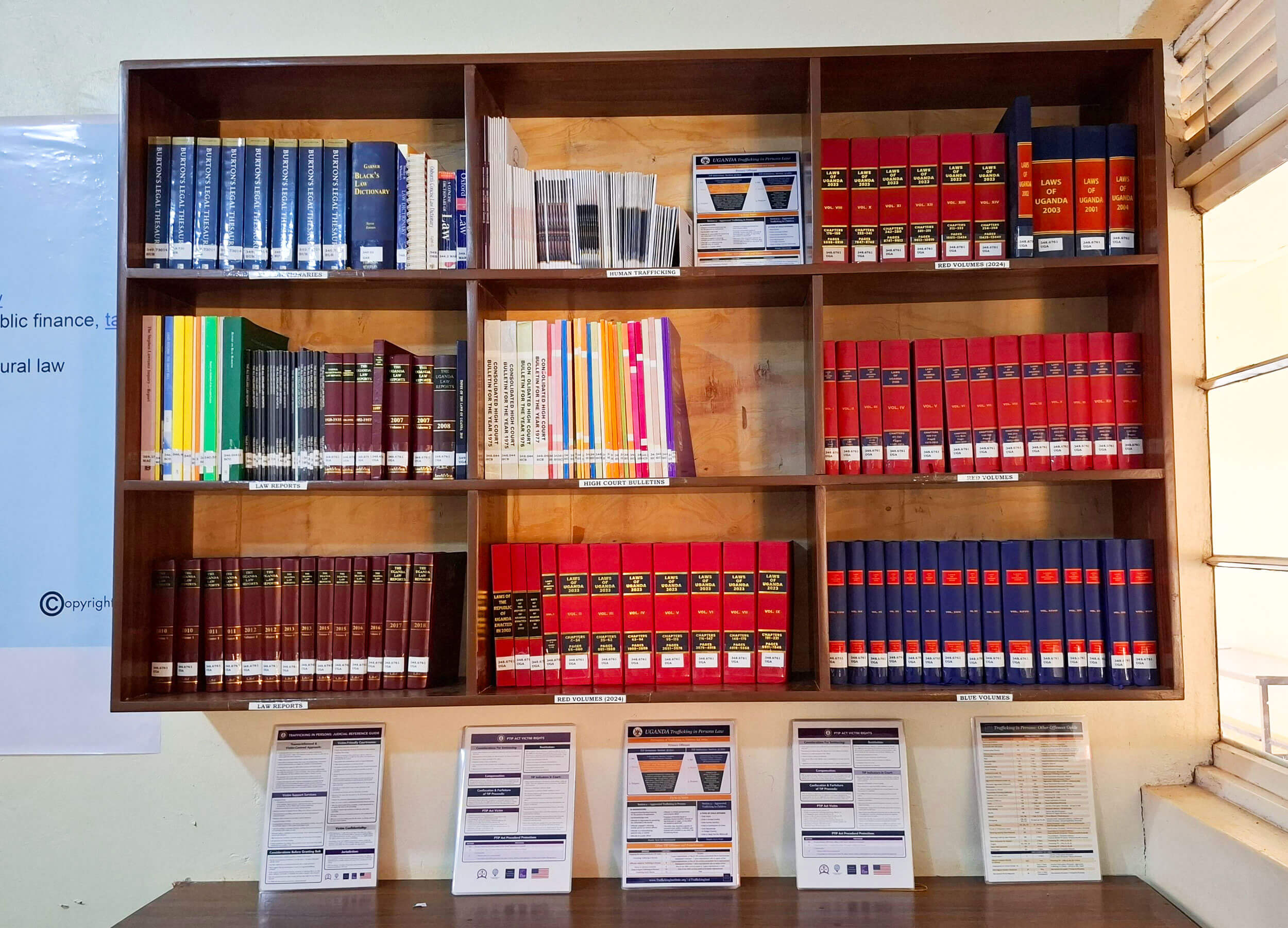
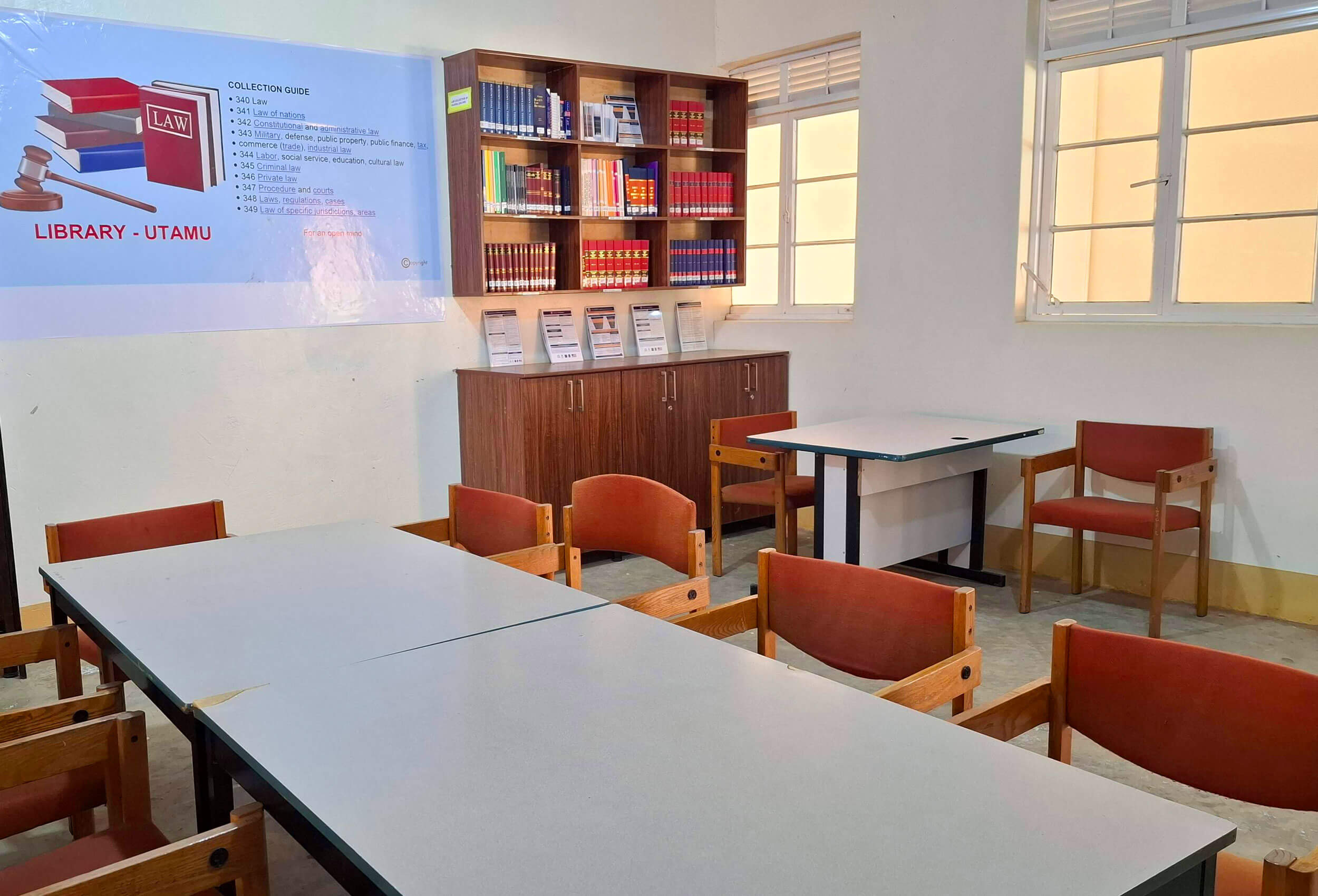
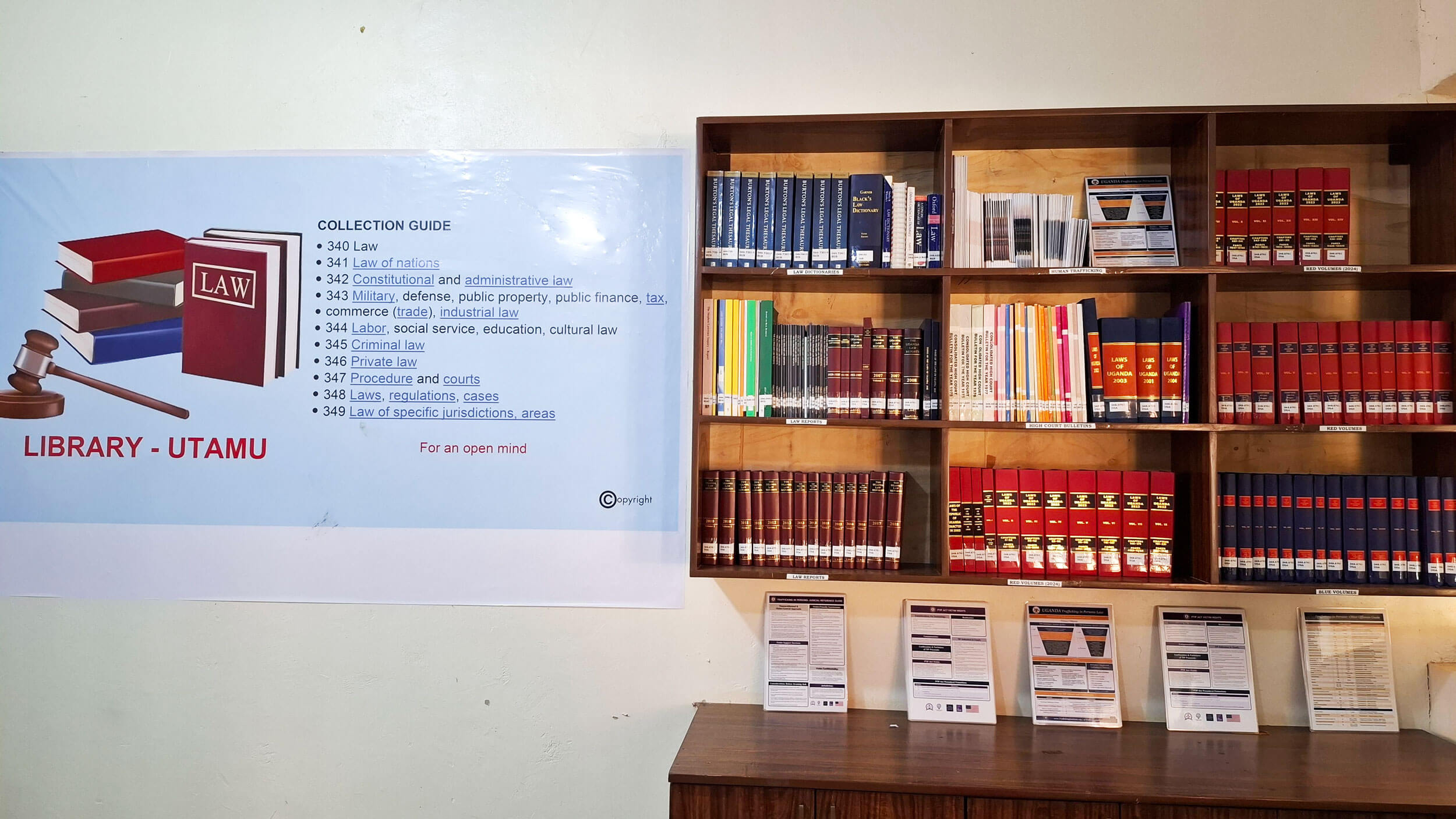

Law Resources
UTAMU has access to the following electronic law resources.
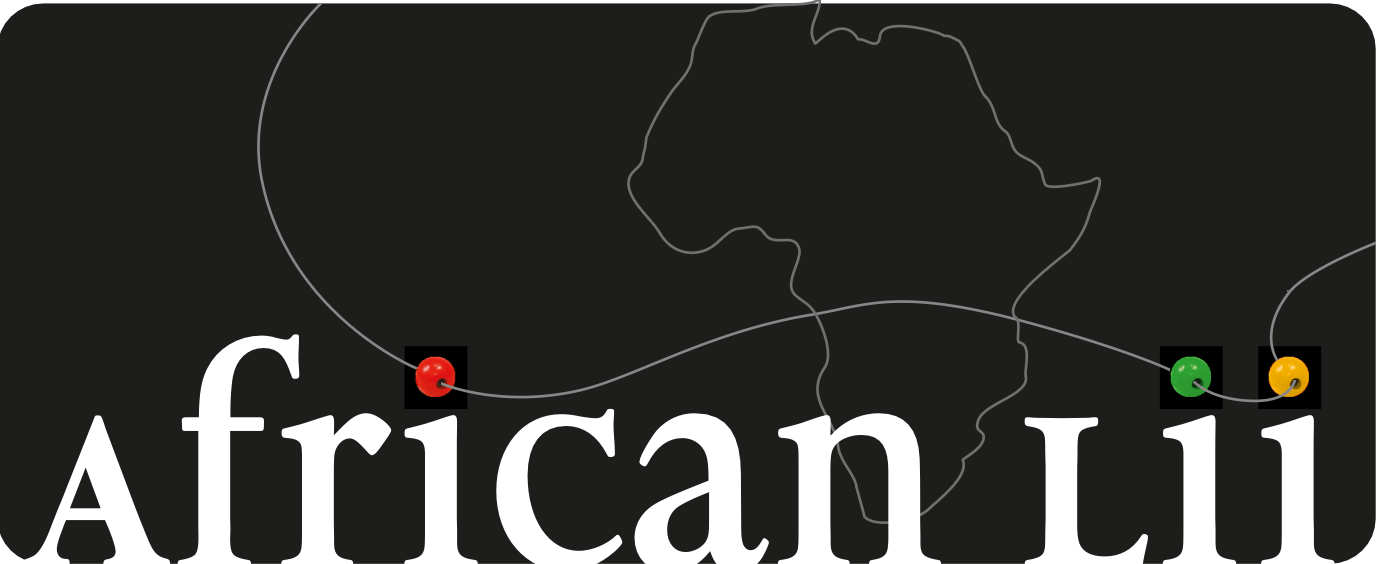
African Legal Information Institute
AfricanLII is a programme of the Democratic Governance and Rights Unit at the Department of Public Law, University of Cape Town. The institute helps individuals, organizations, and governments build and maintain sustainable access to law portals, and reach the people of Africa and beyond.

GOALI
Academic and peer-reviewed journals, publications and databases on law and social sciences. GOALI offers access to up to 16,000 resources, including books and peer-reviewed journals from 70 publishers, and the offering keeps growing.

JSTOR
Covering back issues in law including criminology and criminal justice dating as far back as 1910 (journals) and recent text books too.

OECD Legal Instruments
The Compendium of OECD Legal Instruments provides the text of all the legal instruments adopted in the framework of the Organisation for Economic Co-operation and Development (OECD), as well as related information including the list of OECD Members and non-OECD Members having adhered to them (the Adherents).

NATLEX
Database of national labour, social security and related human rights legislation.
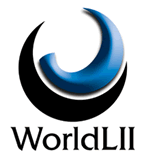
World Legal Information Institute
Holds over 834 databases from 123 jurisdictions via 14 Legal Information Institutes
